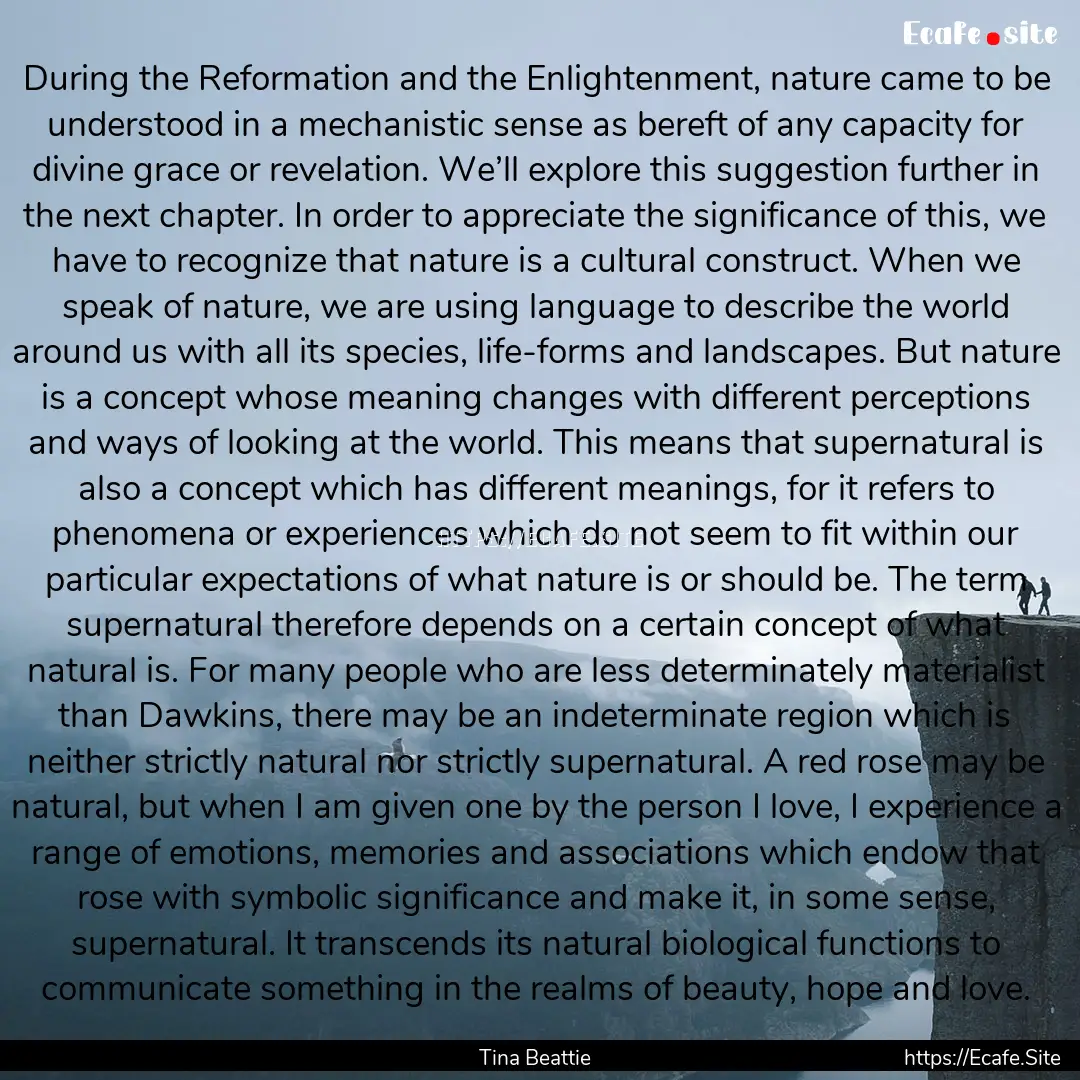
Report, if you have a problem with this page“ During the Reformation and the Enlightenment, nature came to be understood in a mechanistic sense as bereft of any capacity for divine grace or revelation. We’ll explore this suggestion further in the next chapter. In order to appreciate the significance of this, we have to recognize that nature is a cultural construct. When we speak of nature, we are using language to describe the world around us with all its species, life-forms and landscapes. But nature is a concept whose meaning changes with different perceptions and ways of looking at the world. This means that supernatural is also a concept which has different meanings, for it refers to phenomena or experiences which do not seem to fit within our particular expectations of what nature is or should be. The term supernatural therefore depends on a certain concept of what natural is. For many people who are less determinately materialist than Dawkins, there may be an indeterminate region which is neither strictly natural nor strictly supernatural. A red rose may be natural, but when I am given one by the person I love, I experience a range of emotions, memories and associations which endow that rose with symbolic significance and make it, in some sense, supernatural. It transcends its natural biological functions to communicate something in the realms of beauty, hope and love. ”

Tina Beattie
From : The New Atheists: The Twilight of Reason & the War on Religion



